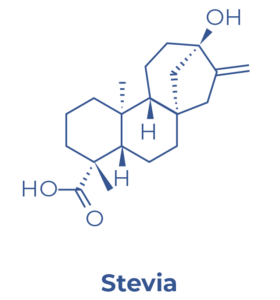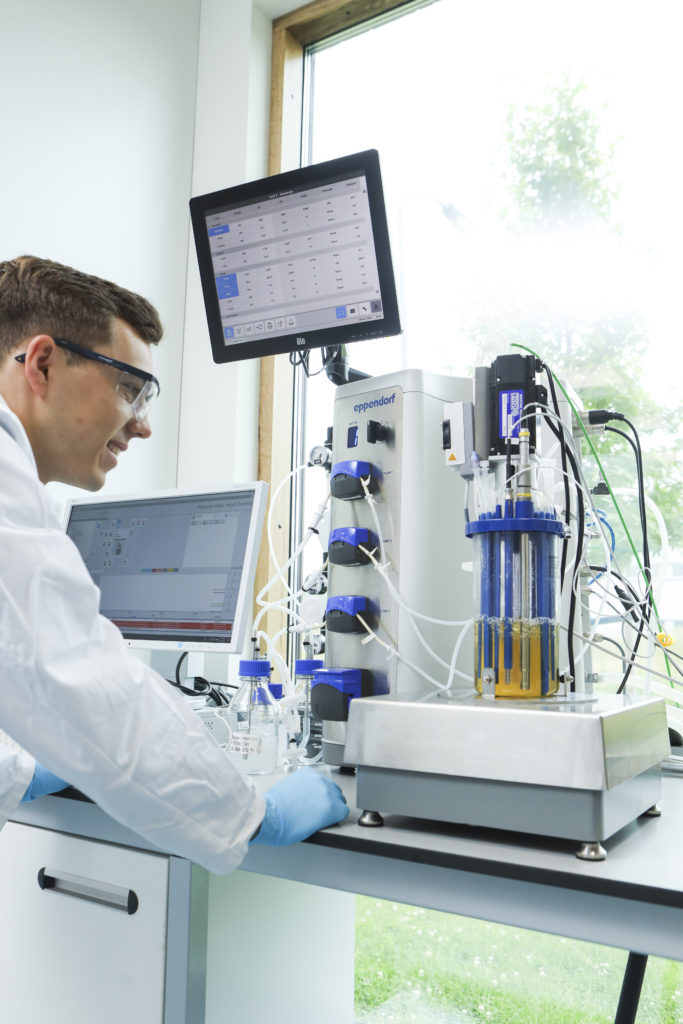Many people are scared of GMOs, but should they be? Genetically Modified Organisms, or GMOs, are a highly valued biological invention that has been around for about 50 years in products we use day to day like your medication or your laundry detergent. Unfortunately, GMOs still have a negative connotation in the eyes of the public even though fermentation is publicly well accepted. A recent study in the US, UK and Netherlands showed that fear of GMOs is often due to lack of knowledge about the topic, and that teaching people about GMOs increased positive attitudes¹. In light of these findings, we would like to share why genetic engineering and fermentation should be your friend!

Even though genetic engineering seems like a futuristic tool, it has been around for some time and GMO derived products have been closer to you than you might have thought. In 1973, two biochemists, Herbert Boyer and Stanley Cohen, inserted DNA from one bacteria into another and thereby developed genetic engineering. This invention came as a saviour in the lives of diabetic patients, as three years later, the first synthetic human insulin was produced using a genetically engineered E. coli. The insulin that was previously used came from pigs and cattle and caused allergic reactions in the patients. In 1982, the FDA approved E. coli insulin as the first consumer GMO product developed through genetic engineering. By the year 2000, the FDA had approved more than 100 medicines that are derived from genetically modified organisms. These medicines range from treatments for rheumatoid arthritis, cancer to long-term kidney disease.
The potential of GMO derived products is not just restricted to medical uses. These products can be found in flavour and fragrance products, cosmetics, household cleansers, biofuel and even clothing. The reason you might not know about it is because these GMO derived products are identical to the products derived from plants or synthetically produced. No person or machine could see where this product came from, and the products are completely natural. This is the big difference between GMO products and GMO derived products. The basics of genetic engineering for GMO derived products comes down to this: through a better understanding of the mechanism of microorganisms, scientists are able to target the metabolic pathways of interest to produce ingredients needed. Next, large fermentation vessels, similar to the ones you see in breweries, are used to produce the GMO derived products. Next, the product is extracted leaving no trace of the GMO organism. Utilising fermentation for producing ingredients helps with the transition of petrochemical based methods to more sustainable ingredient production.
GMOs are seen as bad news, which is based on just a few bad experiences. At the end of 90’s and beginning of 00’s, two GMO food products and two fraudulent accusations on GMO tomato and potato caused the whole market for GMO products to dry out. These few bad experiences have created an unneeded suspicion about GMO products, where oftentimes the problem wasn’t GMO itself but how certain persons use these tools and their fraudulent business practices. In 2003 the World Health Organization (WHO) and the Food and Agriculture Organization (FAO) of the United Nations took precautions by developing international guidelines for GMO food safety to prevent any other bad GMO experiences. From then on, inspiring new innovations using genetic engineering and fermentation have shown potential. Here are some of our favourite developments within this blossoming field.
Fermented stevia as a sugar substitute. Sugar is used in day-to-day consumer goods and beverages. . However, when consumed in large amounts, it is not healthy and increases the risk of obesity and other health complications. Finding a healthy alternative would help the increased use of healthy sweet production. Historically, stevia leaves have been used around the world as an alternative sweeter. More specifically, rebaudioside M and D found in the Stevia plant provide the sweetest sugar substitute. However, the quantity of compounds extracted per plant is limited. This means bulk extraction from stevia plants would be needed to ensure it would be an adequate replacement to current sugar consumption. Enter yarrowia lipolytica (a type of yeast). In 2019, Stevia was produced in this yeast through genetic engineering and its large-scale manufacturing was launched. Meeting regulatory safeguards, the product is now being used across the globe for producing healthier and environmentally safer food and drinks. .

Whipping up the next batch of fragrances. At EV Biotech, a pair of our proof-of-concept strains are working to produce fragrance ingredients sustainably. Terpenes are complex natural compounds and an important raw material for the flavour and fragrance industry. Currently most terpenes are procured via petrochemical synthesis, which is a non-natural method of production, or via cultivation, which is resource intensive for fluctuating quantities. . In 2014, the first industrial fermentation derived fragrance ingredient was produced. The ingredient, based on patchoulol, was groundbreaking for the use of fermentation to produce sustainable sources of fragrance ingredients.
These examples are only a glimpse of what continued growth in utilising fermentation for sustainable production methods would look like. As the European Green Deal pushes industry to transition towards more sustainable methods of production, fermentation becomes more interesting. This is because of the great advantage of utilising fermentation to reduce carbon footprint in ingredient production.
So where does EV Biotech fit in this green revolution of utilising fermentation for a sustainable economy? EV Biotech develops strains for the production of chemicals of interest via fermentation. Through the utilisation of in-silico pipelines, EV Biotech is able to streamline the development of strains. These in-silico pipelines reduce the risks in strain optimization, resulting in bringing strains faster towards industrial scale production via fermentation. This makes sustainable production of ingredients more appealing and increases the use of fermentation ingredients in daily consumer goods.
Fermentation has been a cornerstone of human consumption for millennia. With genetic engineering, fermentation will drive forward a sustainable future for the next millenia.

__________________________________________________________________________
1: McPhetres, J., Rutjens, B. T., Weinstein, N., & Brisson, J. A. (2019). Modifying attitudes about modified foods: Increased knowledge leads to more positive attitudes. Journal of Environmental Psychology, 64, 21–29. https://doi.org/10.1016/j.jenvp.2019.04.012